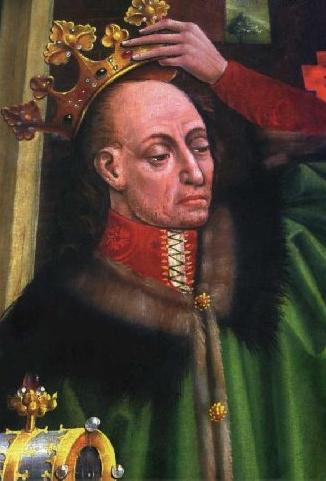
A nation of city states all ruled by the same family, dominated by a foreign invader who extracted tribute for centuries, till a prince beat them in battle and set stage for his city to become the most powerful city in the world, the third of its kind.
Story in the evening ...
Story in the evening ...
https://twitter.com/Arby_K/status/1326704121089413121
Dmitry Ivanovich was born in 1350 to Ivan, Prince of Moscow, and his wife Aleksandra.
Moscow used to be a minor trading post in Vladimir, till Aleksander Nevsky placed his youngest son Daniil as its prince. Its distant location kept it insulated from regular Mongol attack. 1/10
Moscow used to be a minor trading post in Vladimir, till Aleksander Nevsky placed his youngest son Daniil as its prince. Its distant location kept it insulated from regular Mongol attack. 1/10

After the Mongol invasion in early 13th century, the principalities of the Rus had submitted to the Horde, remaining vassals for over 200 years. Moscow was also one among those principalities though Daniil became its prince only in the 1280s. 2/10 

By the time time of Dmitry though, Moscow had become one of the strongest principalities of the Rus. But there was also stronger competition in the form of Algirdas of Lithuania who had annexed Kyiv, which for a long time was the main city of the Rus. 3/10 

Tver, another major Rus principality, had allied with Algirdas, with Algirdas marrying Tver princess Iuliana. As Algirdas besieged Moscow, Dmitry would stay safe with the help of the newly rebuilt Kremlin. The war ended in a truce, raising Moscow's prestige among the Rus. 4/10 

The Mongol domination had started to fail due to internal strife. By 1375, Dmitry had stopped paying tributes to the Horde. In 1378, the Golden Horde would send an army to punish Moscow. But it was Dmitry who would come out victorious, at Vozha River. 5/10 

Two years later came another victory for Dmitry. This time he had with him many of the remaining Rurikid princes as well. He would rout Golden Horde's forces led by General Mamai at Kulikovo near the Don River, giving Dmitry the cognomen Donskoy. 6/10 

The victory will be short lived though. The Golden Horde would get a new Khan soon. This new Khan, Tokhtamysh, would besiege Moscow and get the tribute reinstated. But the period of brief independence would be the stepping stone for far greater heights for Moscow. 7/10 

Dmitry's great grandson, Ivan, would finally end the tributes in 1480. He would also marry Byzantine princess Zoe Palaiologina, daughter of Thomas Palaiologos, Despot of Morea. The union would be the basis for Moscow to call itself Third Rome, after Rome and Constantinople. 8/10 

Ivan was also the first to use the title Tsar (Based on Caesar, earlier used by the Bulgars) and his grandson, also Ivan, would unite all the Rus dominion as Russia in 1547. Moscow would remain the capital of Russia till 1703, but return again in 1918. 9/10 

As Third Rome, Moscow would see itself as the protector of the Orthodox faith for centuries, a role which played a crucial role in its engagements with the Ottomans especially in the 19th and 20th centuries. 10/10 

• • •
Missing some Tweet in this thread? You can try to
force a refresh














